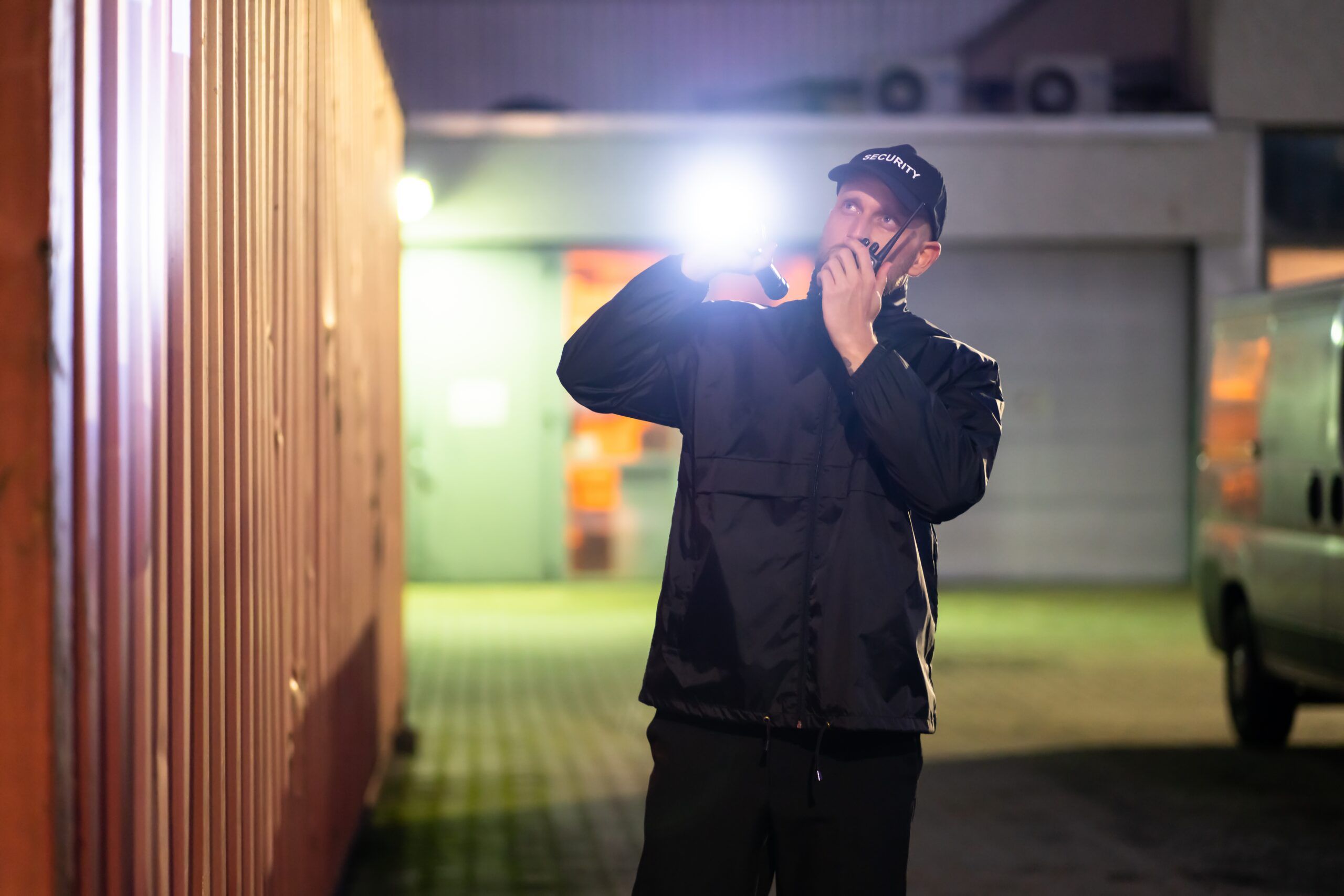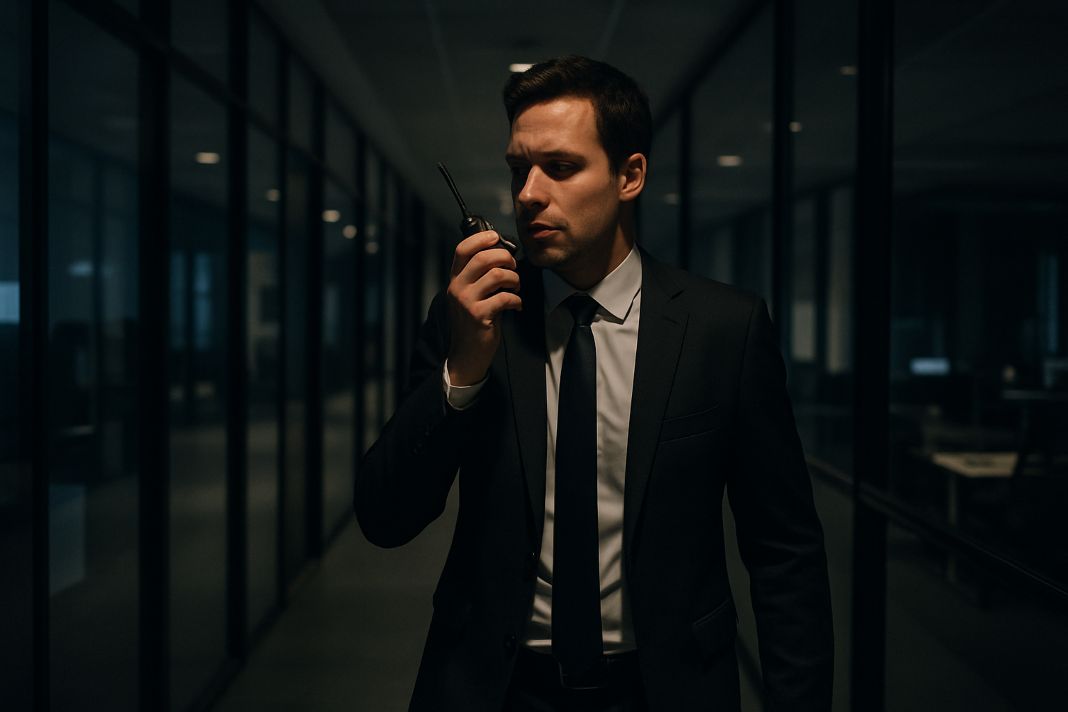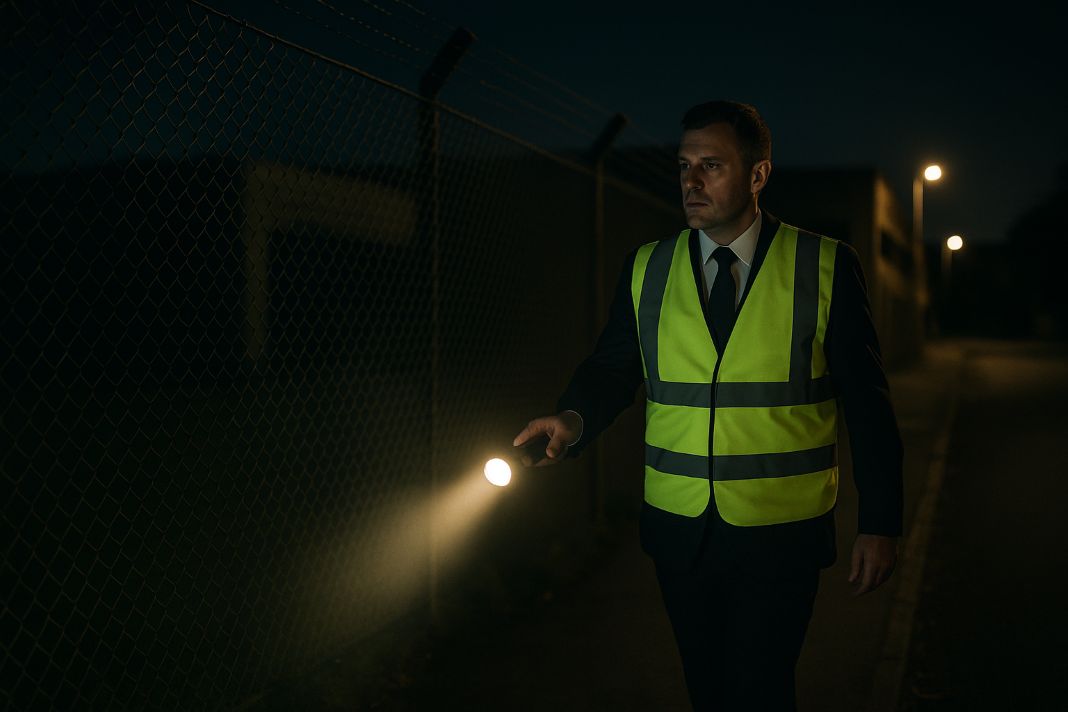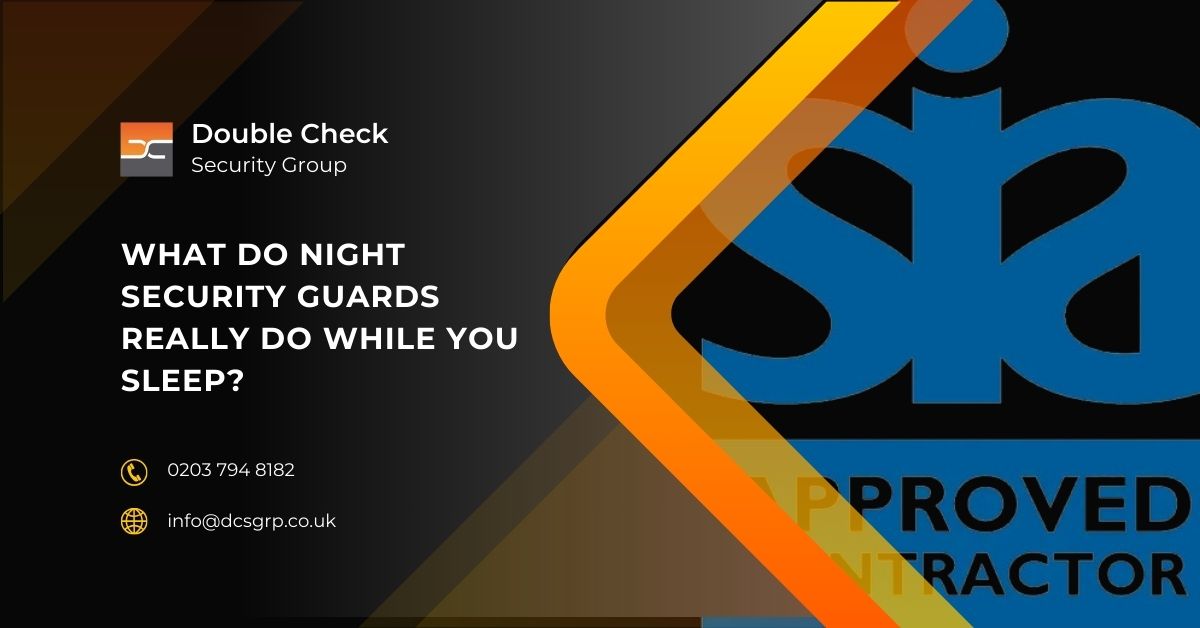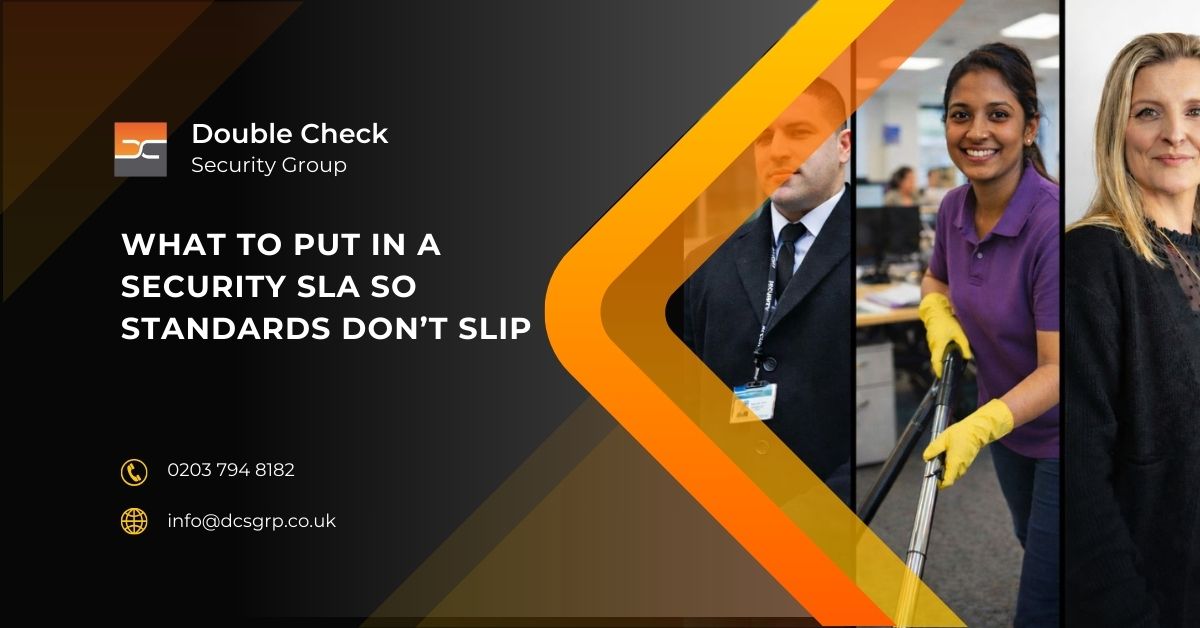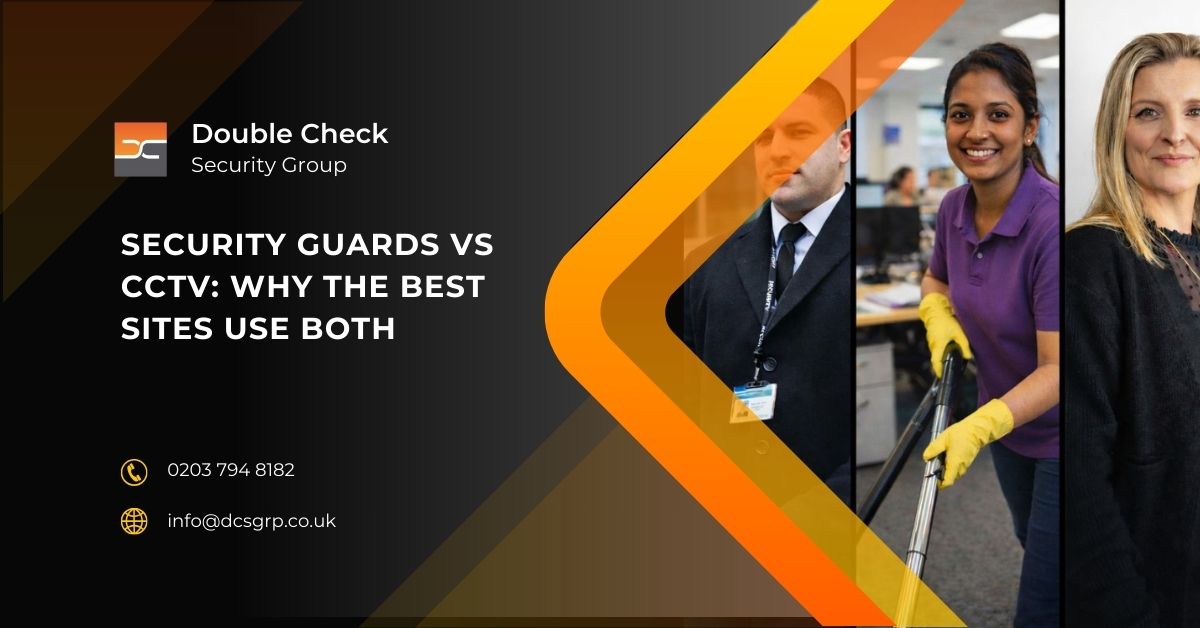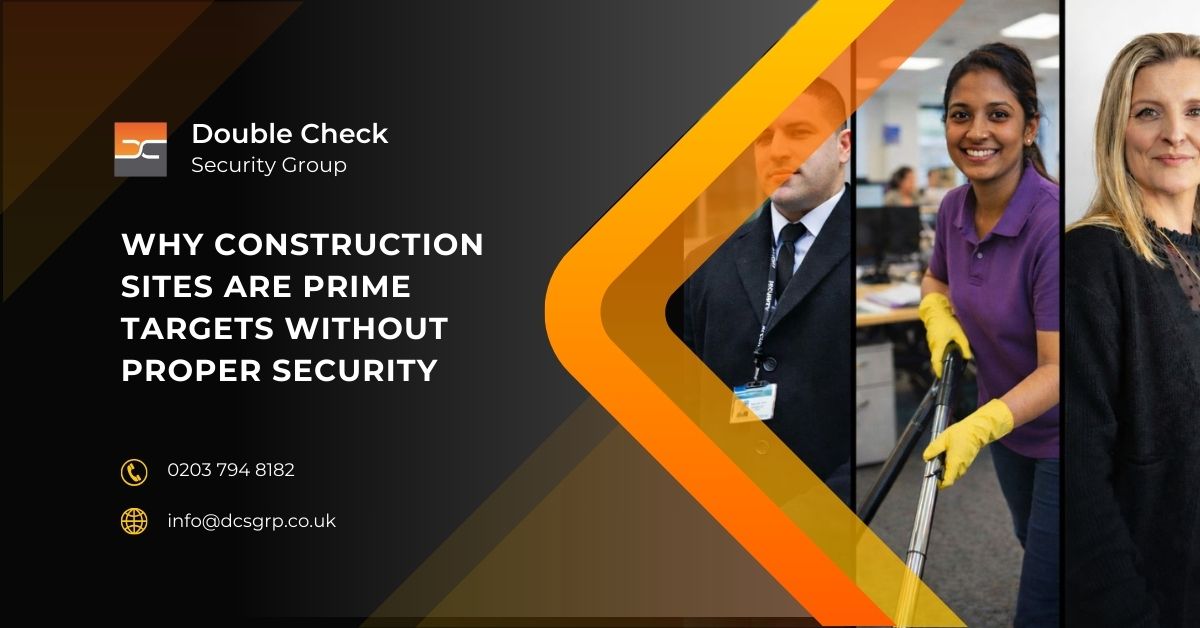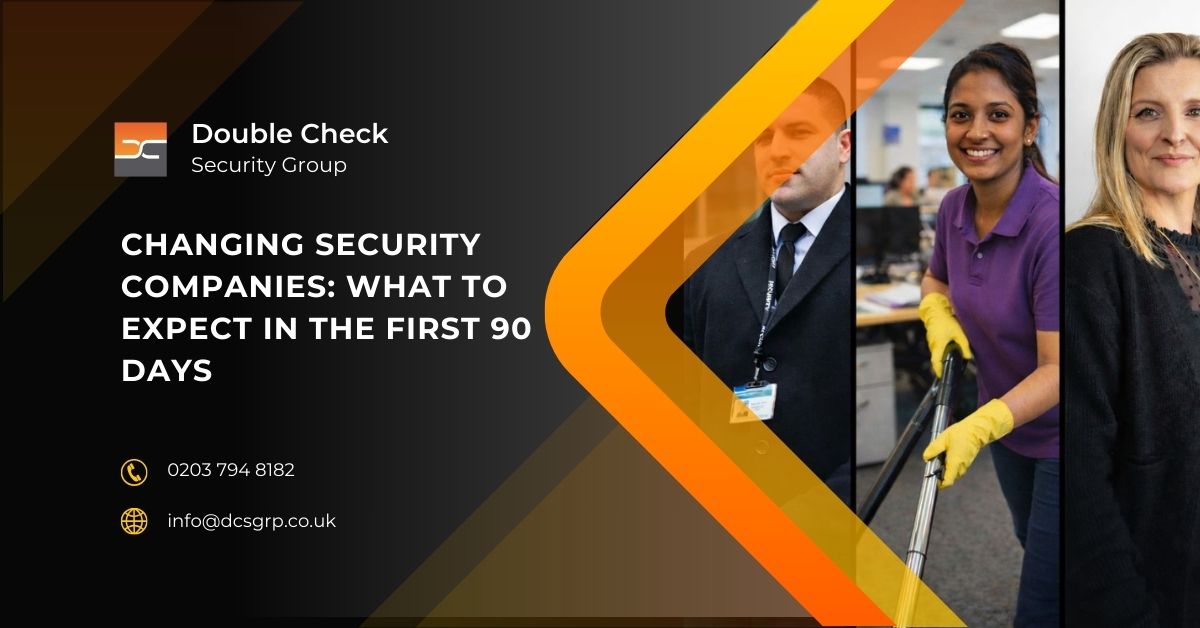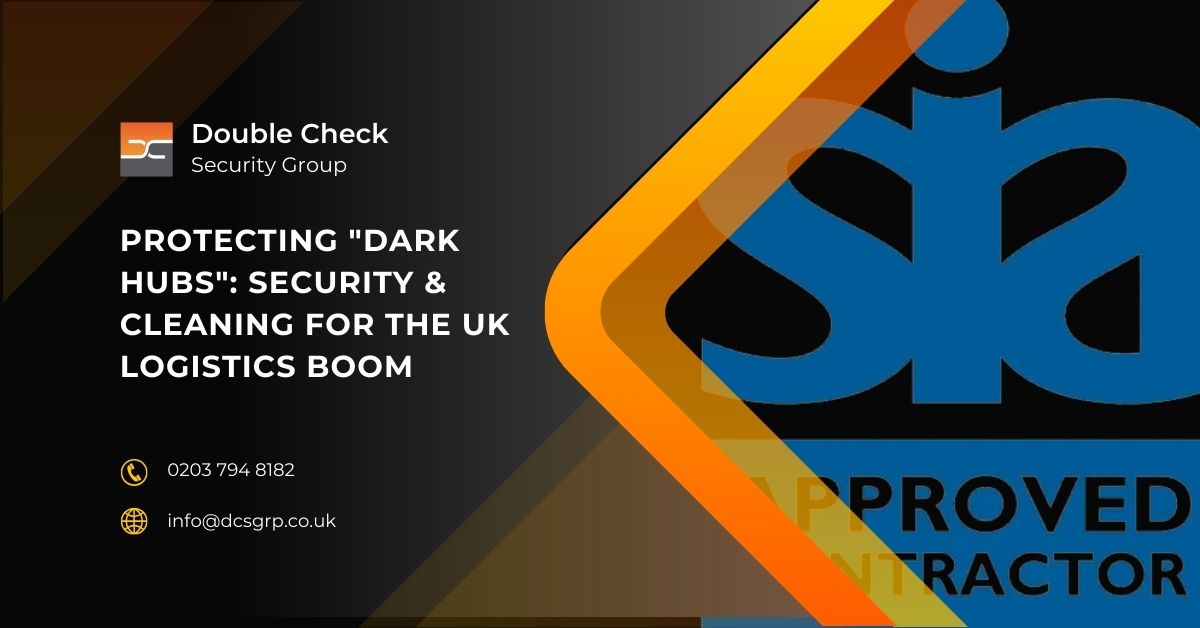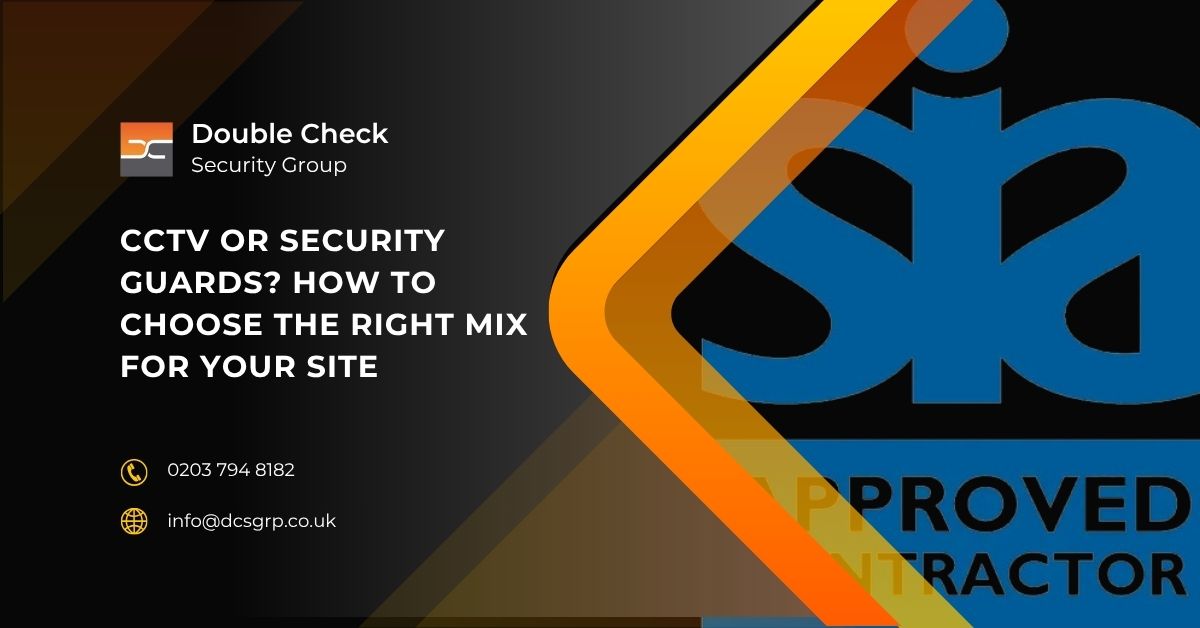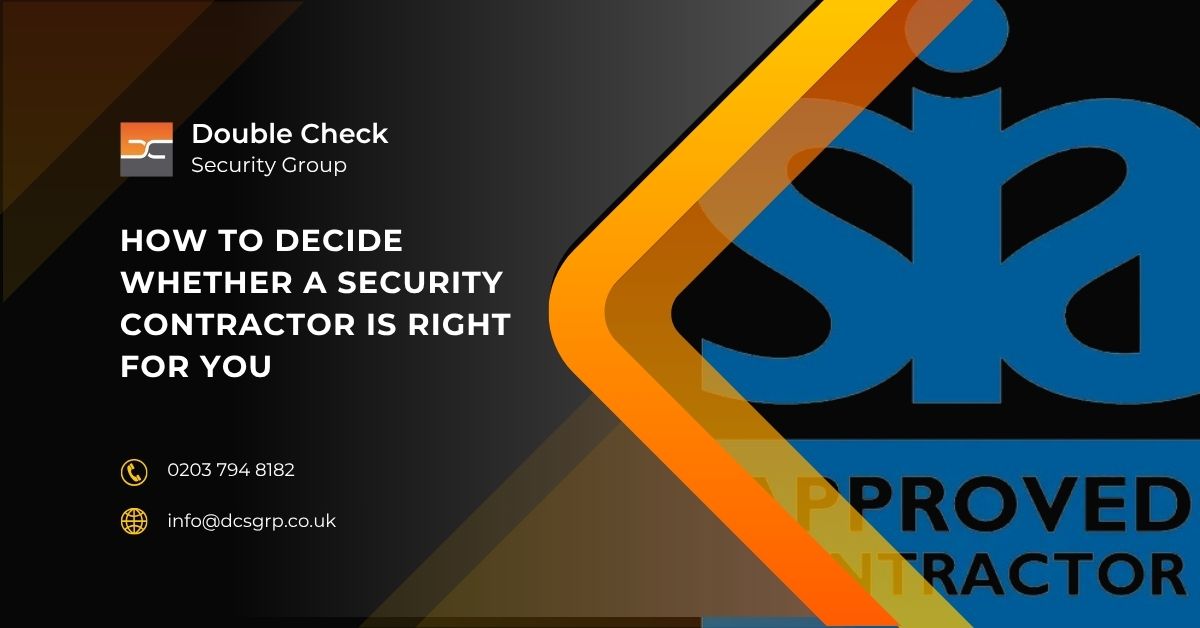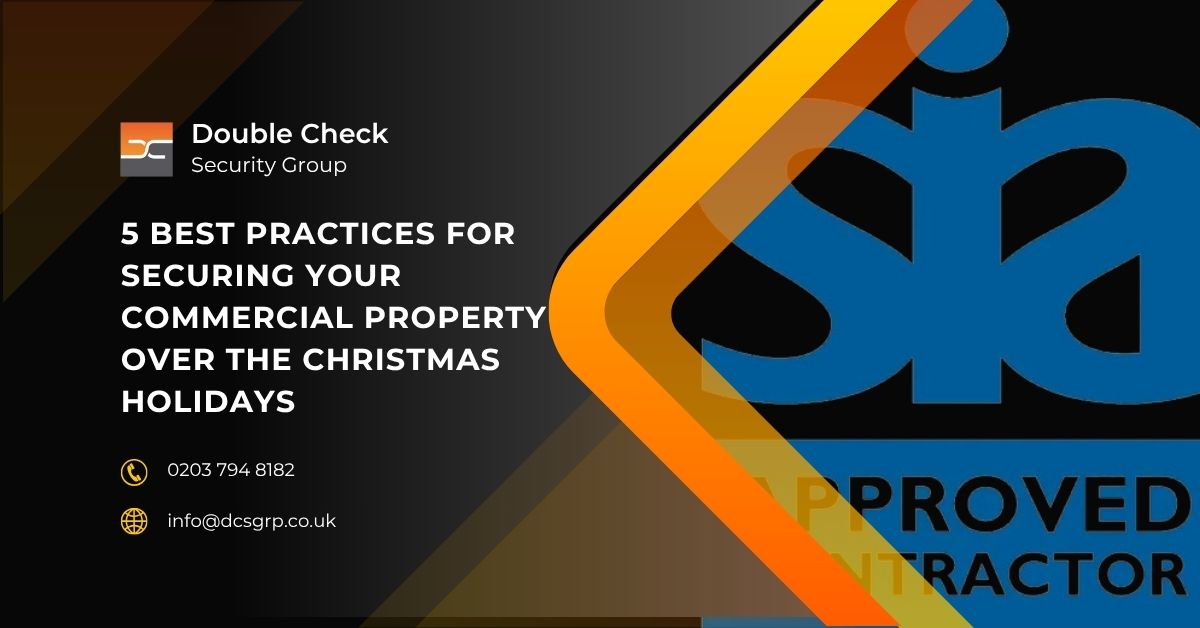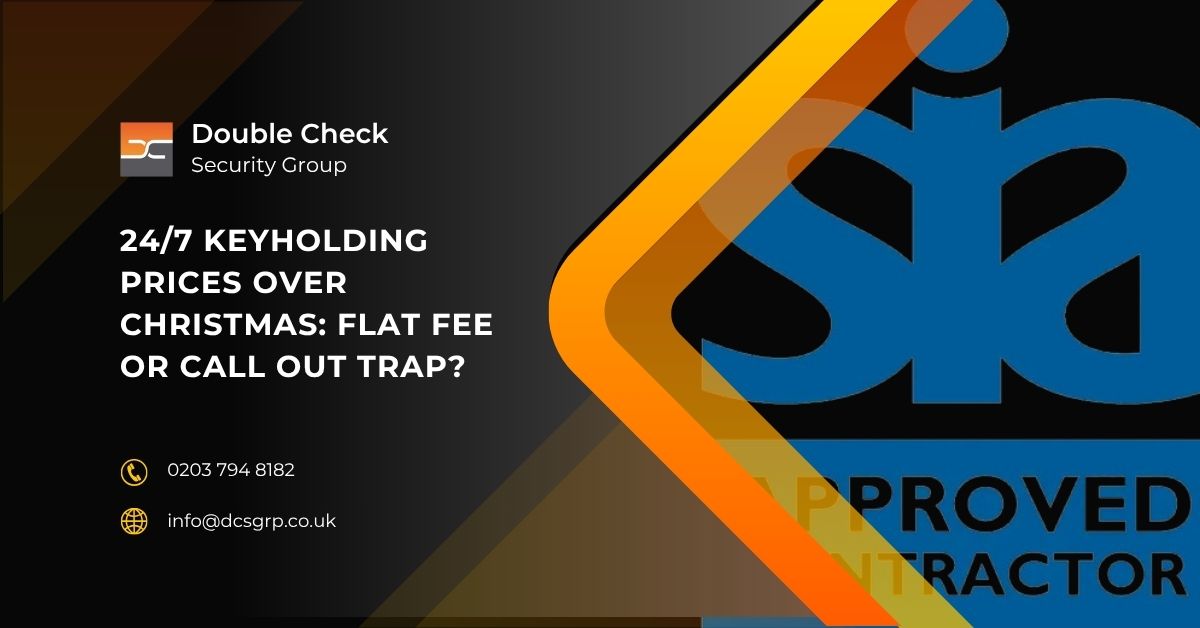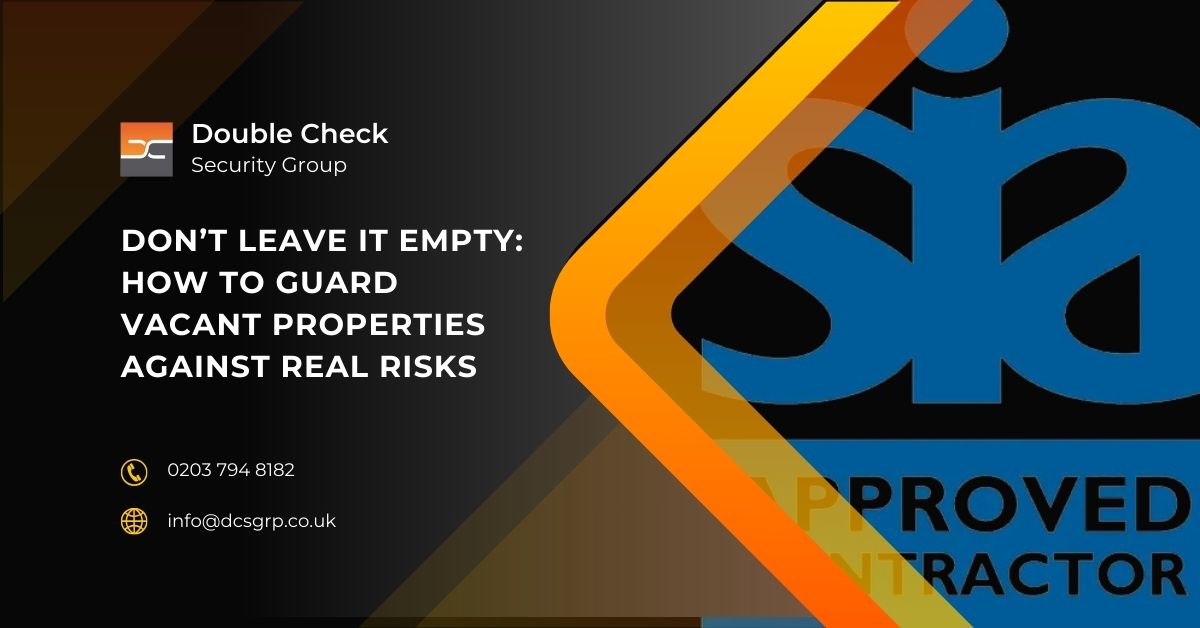What do night security guards really do while you sleep?
Night security guards protect premises during the hours most people assume nothing happens. But overnight sites face serious risks from theft, vandalism and health hazards. Guards follow structured patrols, monitor systems, log incidents and respond to real threats. Their work blends visibility, quick response and routine checks that help keep businesses safe. This guide explains what really happens when the lights go out.
Night Security for Commercial Properties: Why It Still Matters
Most businesses close their doors at night but risks remain. Break ins, equipment faults, unauthorised access and even fire hazards often happen after hours. Security guards carry out scheduled patrols, check alarms, record activity in duty logs and act quickly to protect commercial properties from emerging threats.
Some people assume overnight guards just stay put. In reality, they work closely with CCTV, follow lone worker safety rules and often manage keyholding, site lockdown and emergency response. Their presence prevents crime and improves safety. Following BS 7499 guidelines ensures that every guard’s conduct aligns with recognised standards for static site guarding.
Pro Tip : Ask for time-stamped reports from your security provider. They show real work was done, not just claimed.
Not Sure If You Need a Guard?
Use our quick assessment to find out if overnight security is right for your site.
What Threats Do Businesses Face After Hours Without Security?
Without a guard on duty overnight, sites face:
-
Theft of tools, stock, fuel or equipment
-
Vandalism, graffiti or damage to buildings
-
Fire or flooding going undetected for hours
-
Unauthorised entry by ex contractors or opportunists
-
Insurance issues if no prevention was in place
Sites like retail parks, depots, active construction sites and warehouses often face the highest risk. Poor lighting, damaged fencing or CCTV blind spots increase the risk. If no one is there to act, small problems can escalate fast. Many business insurance policies cite physical guarding as a key risk reduction measure, especially in sectors like logistics and construction.
A Night Security Guard’s Typical Shift: What Really Happens
Each shift begins with a handover. Guards review the earlier logs and take note of any areas needing attention. Then they begin:
-
Walking or driving patrols using checkpoint scanners
-
Logging everything in real time
-
Responding to alarms, movement or system faults
-
Checking locks, access points and vehicle bays
-
Monitoring CCTV feeds in the control room
During the night, they may deal with issues like power loss, repeated false alarms, unauthorised loitering, damage from animals or unexpected emergency callouts. Every action is recorded. At the end of the shift, a report is handed over to the day team. Logs typically include timestamps, incident flags, and a summary of site activity during the shift.
Pro Tip : Pairing CCTV with manned guards offers the best response time and reduces false alarms.
Get Expert Night Security
See how our licensed night guards protect your premises hour by hour.
How Guards and Technology Work Together
CCTV systems help spot movement or trigger alerts but they do not solve the problem. Guards and technology work hand in hand:
-
CCTV alerts the guard or remote control room
-
The guard attends, investigates and confirms the issue
-
Guards verify alarms before calling emergency services
-
Blind spots or outdoor areas are checked manually
This teamwork reduces delays and avoids false callouts. A sensor might see movement but only a guard can check what actually happened. When integrated with alarm panels and control systems, guards help close the loop from alert to resolution.
What Separates Good Guards From Poor Ones?
Signs of a Professional Night Guard
-
Holds and displays an active SIA licence
-
Uses checkpoint scanners at agreed intervals
-
Logs all incidents and patrols in real time
-
Communicates any unusual site activity promptly
-
Follows lone worker protocols and check in routines
-
Arrives on time and completes full site handovers
-
Can explain their patrol route and access zones
Less reliable guards might miss patrols, fake reports, avoid logging or ignore alarms. A good provider gives clients visibility through digital reporting tools, GPS check ins and frequent supervisor visits. NSI Gold approved providers will usually have more robust procedures, with random spot checks and performance reviews baked into their service level agreements. Many also align with British Security Industry Association (BSIA) guidance and factor in Health and Safety Executive (HSE) expectations during service planning.
Why Night Guards Adapt Duties by Site Type
The best guards adapt their duties to match the site’s needs:
-
Retail parks: Check shutters, escort staff, monitor deliveries
-
Construction sites: Fire watch, machinery checks, fence integrity
-
Office blocks: Control access, secure server rooms, check alarms
-
Warehouses: Log vehicle entry, manage access gates, check stock areas
Every type of property brings different routines and risks. Construction site safety after hours often involves fire watch, equipment security and perimeter control. Warehouses need consistent gate log accuracy, stock checks and vehicle access verification. For facility management teams, understanding site risks helps determine the right overnight guarding plan without overcommitting staff. Knowing what matters to your site helps the guard focus time in the right areas. Risk assessments usually guide site specific duties, often adjusted as operations or threats change over time.
When Should a Business Consider Hiring a Night Guard?
You may need a night guard if:
-
There have been break ins or damage overnight
-
You store expensive stock, tools or equipment
-
The site is large, open or has multiple entry points
-
Your insurance requires a physical presence
-
Alarms or cameras alone have not solved the issue
A risk assessment can confirm if manned guarding, mobile patrols or a mixed plan is best. It does not always mean higher cost, just smarter coverage. Where budget is tight, mobile patrols combined with remote CCTV support can offer a reliable alternative.
Frequently Asked Questions
Can a night guard detain someone in the UK? They can make a citizen’s arrest if they witness a crime but must follow SIA training and keep themselves and others safe. SIA rules stress communication and incident reporting over confrontation.
Do night guards carry weapons? No. UK security guards do not carry weapons. They may carry radios, torches or personal safety alarms. Any physical intervention is covered under specific training modules and strict protocol.
How often do guards patrol? This depends on the site and contract. Some sites use hourly scans or random patrols based on risks. Patrol frequency may be increased in high crime areas or during quiet seasonal periods.
How do guards handle false alarms? They attend every alert, check the cause, record it and reset the system if needed. Even false alarms are logged for future reference. False alarm statistics help improve system tuning over time.
What’s included in a typical report? Time logs, incidents, door checks, CCTV notes, photos if needed and full handover notes for the next shift. Some providers issue digital reports with GPS verification and photographic evidence where available.
Is a night guard better than CCTV alone? CCTV alerts and records, but an out of hours security guard can verify, respond and act on incidents in real time. This human presence reduces false alarms and adds visible deterrence.
What does SIA licensed mean for night guards? An SIA licence means the guard has passed recognised training in safety, conflict management and site protection, and has cleared background checks required by law. Some providers issue digital reports with GPS verification and photographic evidence where available.
Why Guards Still Matter
Security guards offer more than a visible presence. They’re trained professionals who support site risk assessment, reduce liability and provide real time intervention when systems alone fall short. When everyone else has gone home, a good night guard keeps your business visible, secure and under control.
Night security remains essential, not only because systems sometimes fail, but because human judgement and quick action still matter. Where CCTV ends, the trained judgement of a licensed guard begins.

